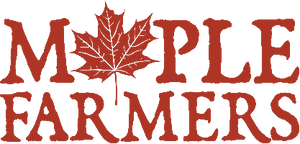Sugaring Tradition in Vermont
article and photos by Peter Cobb, The Barre Montpelier Times Argus, Explore Central Vermont | Spring 2024

David Strong is keeping alive a tradition in Orange that goes back at least to the 19th century. He and his family are sugaring land that was sugared in the 1800s, not the same trees, most were destroyed in the 1938 hurricane, but on the same land.
“It’s the love of tradition, of being outdoors and in tune with nature, the camaraderie among maple syrup producers, the pride in what we produce, and the satisfaction of sharing it with friends and family that counts,” Strong said.
The Strong family has been making maple syrup at their 350-acre property in Orange since 1980 when David’s parents started tapping trees along the road past their house.
While they have adopted several modern conveniences over the years, the Strongs still boil down the sap the way their great-grandparents did back in 1889 in Dixville, Quebec, and they fuel their evaporator with firewood harvested from their land.
“My maternal grandmother, Pearl (Wright) Reid, told stories of her grandfather making maple syrup and how the train stopped at the sugarhouse in Dixville during the season. My mother’s father, Howard Reid (a longtime Barre dentist), sugared as a young boy at a farm on West Hill in South Barre and shared stories about that,” Strong said.
David’s parents, Bob and Jane (Reid) Strong, bought the farm in Orange, just over the Barre line, not far from where his mother grew up. They moved to Orange in 1976, when they were 57.
“They began, like most sugarmakers, by tapping trees along the road and making syrup for their own use,” Strong said.
Four years later, David’s father bought a small wood-fired evaporator with the idea of making enough syrup for friends and extended family by tapping trees in an old, overgrown sugarbush some distance from the house.

“I decided to help out but was living in upstate New York at the time, so we partnered with a neighbor, Ken Cochrane, to help collect sap and boil it down 50-50 basis. We built a small sugarhouse at the base of the sugarwoods and our operation gradually expanded. I came up on weekends to help out. I moved to the farm in 2000 to take care of the family place after my parents died and to devote more time to sugaring. My wife, Laura Zeisel, joined me in 2005 at a place we bought in nearby Plainfield,” Strong said.
Strong taught at the Community High School of Vermont in St. Johnsbury and later in Barre. He recently moved back to New York, but continues to operate the sugaring operation with the help of other family members, including his brother-in-law, Ron Hirsch, of Barre.
“We started out with about 200 taps and gradually expanded as we thinned and culled trees from adjacent areas of our 15-acre sugarbush. We currently have 1,200 taps on 10 acres. We did do buckets for a while, but the lack of equipment and at-the-ready volunteers made that impractical as we grew, so we changed to tubing. At first, the sap came in by gravity, boiled with wood by lantern light, and used cloth and paper filters. Then we got a generator to power a vacuum,” Strong said.

In addition to a vacuum pump, Strong has a reverse osmosis machine that concentrates the sap before boiling and has reduced firewood use by more than half. Also, instead of using gravity and cloth filters to take impurities out of the syrup, Strong uses a filter press using air pressure that can handle larger volumes of syrup.
In 2017, the family built a new sugarhouse closer to the house.
“After 30 plus years, it was time to replace the old sugarhouse and it had become difficult to haul all the firewood we needed, so the family built a new sugarhouse closer to the farmhouse and electric service,” Strong said.
“When our family started making maple syrup, it was mainly for our consumption. That was true for many years. As we grew, we sold surplus to friends and at farmers markets in Barre and Plainfield. Now that we’re making several hundred gallons per year, we market what we don’t use or retail ourselves through the Maple Farmers collective,” Strong said.
“It’s a lot of work. There are always new challenges. Climate change is the biggest problem. Instead of tapping on Town Meeting Day, we’re tapping in January and making syrup much earlier than before. The downside is that the season seems to be getting shorter,” Strong said.
“Storms of greater intensity bring down more trees and limbs than before, making upkeep on tubing systems more time-consuming. We’ve never made much money from what we do. At best, we contribute something towards our property taxes,” Strong said.

